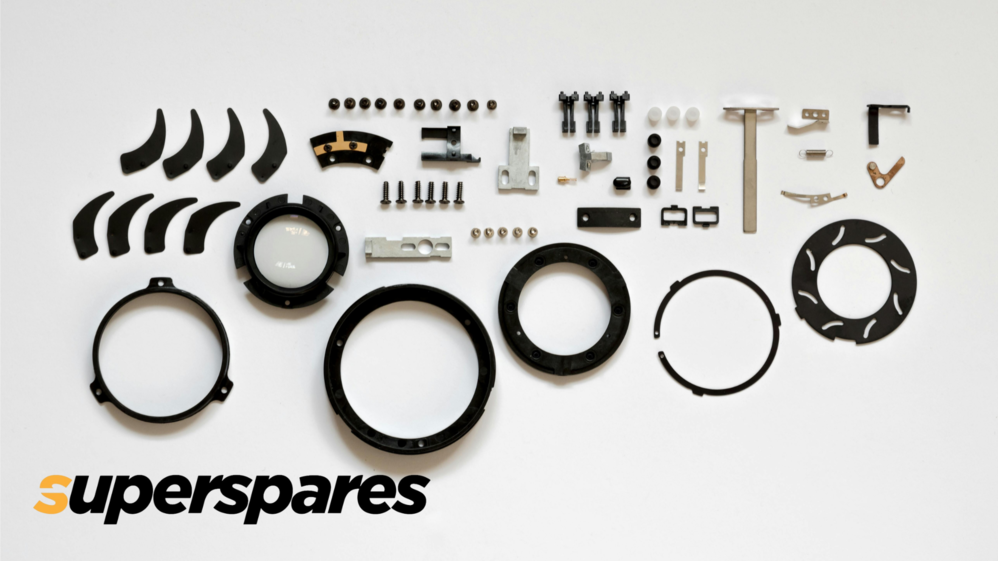A Guide to Buying Aftermarket Vehicle Parts

| When it comes time to make a repair on your vehicle, look into using aftermarket parts instead of parts sourced directly from the car manufacturer. There are a number of benefits of using aftermarket parts on a car. These parts tend to be more affordable, and they are more widely available than the manufacturer’s original parts. In fact, you’ll find that most mechanics and insurance companies tend to use aftermarket parts for just these reasons. |
Q: What are Aftermarket Options?
|
The Choice of Aftermarket vs. OEM Parts
Car mechanics and repair shops frequently make use of aftermarket parts in customer vehicles. For instance, a mechanic will check with local stores to get a needed car part right away, such as “transmission fans,” and will pick up the closest and most affordable one of good quality. This is a way for the mechanic to quickly get a hold of the right part for the repair at a more affordable price for the customer. OEM parts are not always easy to find on short notice, so mechanics use aftermarket parts from nearby distributors. However, customers can still request that mechanics use only OEM parts as long as they are willing to wait for the part and pay the higher cost of the part. |
Q: What are the Benefits of Aftermarket Parts?
A: Car owners will find that aftermarket parts have several benefits, whether they are exhaust parts or just tail light assemblies. These benefits make aftermarket parts a very attractive option for the average person looking to have his or her car repaired or just replacing older parts on the vehicle. |
Q: What is the Differences Between Aftermarket and OEM Parts?
A: When researching aftermarket parts and trying to decide if they are a better option, it can be difficult to see the big picture. The chart below provides an overall comparison of the strengths of each type of car part in different areas. This can make it easier to see at a glance, which is better for you as a customer. |
|
Characteristic
|
Aftermarket Parts
|
OEM Parts
|
|
Quality
|
Varies greatly depending on the company; stick to licensed, familiar, or mechanic recommended brands | Good quality and reliability; problems remain consistent for each new replacement part; some parts have warranties |
|
Selection
|
Lots of options; many brands producing many types of same part | Limited to one brand or a few styles; no other options |
|
Price
|
Price varies from very cheap to expensive; most parts cheaper than name brand | More expensive than aftermarket parts; less variability in price due to little competition |
|
Availability
|
Widely available; parts sold in car part stores around the country | Limited to stores in general area of manufacturer; customers at distance must wait for shipping |
Q: Do you know Your Seller?
A: Before purchasing aftermarket car parts and accessories on eBay Motors, you should take the time to get to know your seller. All sellers with a previous sales history will have customer feedback. To get to this customer feedback, you can click on the seller name in any listing. This will take you to a new page with all the feedback in the form of comments and a customer rating. Reviewing these comments and ratings will help you to see if the seller helped satisfy customers who purchased items in past listings. Additionally, each customer’s rating for that seller is averaged together to create the overall rating for that seller. |
Insurance
Before using aftermarket parts on your vehicle, you may want to see what your state’s policy is on the subject. Insurance companies prefer that their customers use aftermarket parts when making a repair, because it is a cheaper part and will cost the insurance company less money. However, some states have banned the use of aftermarket parts or created laws requiring car owners and mechanics to disclose that the vehicle has aftermarket parts. This isn’t too difficult of an issue to handle, but it’s important to stay up to date on the current state laws.
In a car, aftermarket parts could be considered generic brands, but they fulfill the same need and function for the vehicle as the OEM part. Using aftermarket parts is a common practice among car mechanics, and insurance companies. These parts are much more affordable than OEM parts. Furthermore, they are more widely available, and in greater variety than the name brand car parts. Customers can choose to use only OEM parts for their cars if they prefer. This does help ensure that the car is made from original parts. It also ensures that parts fit exactly as they were meant to by the car manufacturer. Before choosing to use aftermarket parts in your vehicle, take the time to review your state’s policies regarding aftermarket part usage. Some states have limited bans on the use of aftermarket parts, and require disclosure of these parts in a vehicle during a car sale and related transactions. |


